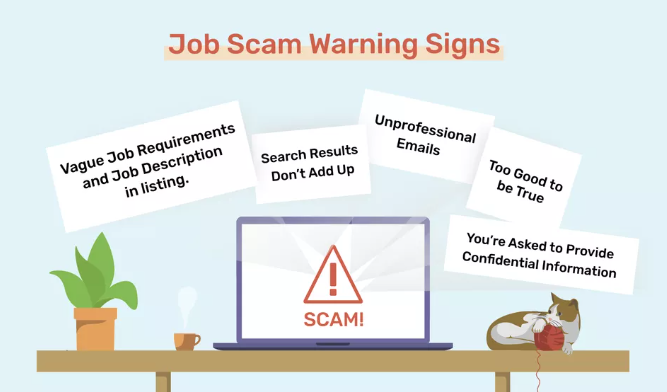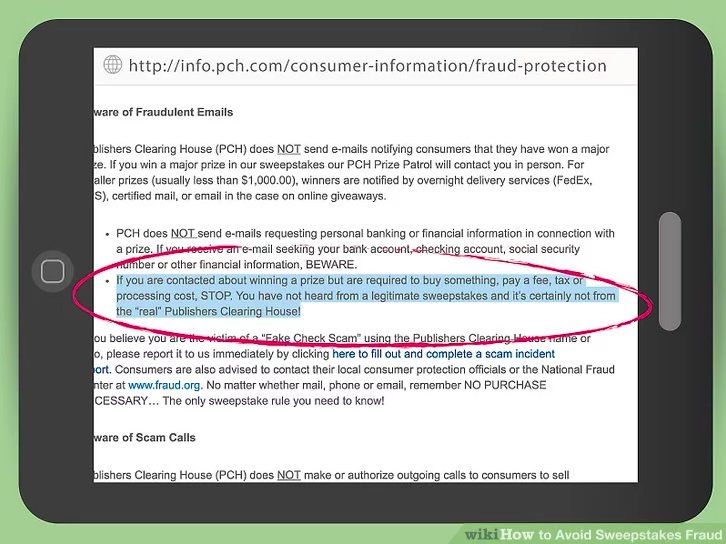Who knew that in just a few months we would be facing such a dramatic change in the way in which we live our lives? Everything seems to have changed so substantially that we now need to approach the future from an entirely different point of view.
Compared to the way in which we used to do things, such as shop, socialize, work and schooling, things have taken a turn in a completely new direction. For many months we were required to do it all online, although now, as restrictions ease up a bit, we are able to return to a semblance of normalcy.
This year alone has seen the advent of the pandemic, social distancing and … sadly … the rise of cybercriminals. With that said, as the holiday season approaches, the rise in scammers seems to grow and they are becoming bolder and more innovative in the ways in which they scam people.
Sadly, far too many people are falling prey to the schemes which these criminals are putting forward. But how do we know which are scams and which are the real deal? Especially when it comes to things such as online shopping?
Thankfully, while the scammers are becoming bolder, there is also a wealth of information out there to warn potential victims of these sly perpetrators and their dreadful schemes. Below are five scams that are even more popular with scammers now due to the pandemic, as well as how to avoid being caught by their schemes.
1. The Puppy Scam
Animals are a wonderful way in which to calm and distress a person. Very often, dogs are used as therapy animals for people with PTSD and other stress disorders. Therefore it isn’t strange that the demand for pets has sky-rocketed during the pandemic. It has been a highly stressful time for so many people and so they have gone out shopping for man’s best friend … a puppy.
According to the Better Business Bureau, pet scams now account for 24 percent of all online scams. They seek out and target people who are searching for a lovable puppy companion. Of those who are targeted in these pet scams, up to 70 percent will lose money to the crooks.
Many potential buyers were contacted and told that they needed to pay money for special temperature controlled shipping crates for their would-be pet. Once the money was paid in, the thieves took off, leaving their victim with an empty wallet and a broken heart.
One way to avoid falling into this trap is to make sure never to buy a pet online. Rather go to the pet store or animal shelter. If you do want to buy a puppy from someone online, though, always remember that if you aren’t allowed to see the puppy in person then it is more than likely that this is a scammer trying to hoax you out of your money.
Always avoid wiring money, using a gift card or a cash app to pay for your puppy purchase. If you are required to do so, chances are pretty big that this is a scam.
2. The New Job Scam
Many people have lost their jobs due to the restrictions from the pandemic, businesses closing etc. So it is no wonder, then, that this is yet another way in which scammers have decided to target people.
These scammers will pretend to be job recruiters contacting you regarding a new job opportunity. More often than not, they will use company profiles from legitimate recruitment companies, resume information and job offers to make their scam sound more plausible.
They will email you, phone you and chat with you online to make you think that the job they are offering you is real. So how do you know it is a scam when they are so sophisticated in their deception?
To spot a scam, it’s good to keep the following in mind:
- It sounds too good to be true.
- They offer above-market salaries.
- They ask you to pay or provide personal details.
- The job requirements and job listings are vague.
- There are grammar and spelling mistakes in their emails

If your scammer sensors tingle, make sure you do some extra research before going any further.
3. The Cryptocurrency Scam
In the past several years, cryptocurrency has really taken hold and become quite popular. Cryptocurrency is an online currency that operates outside of governments and central banks. It is not paper bills or coins and it is kept in an online wallet which is then protected by a password.
This currency can be used to buy goods, provided the supplier accepts cryptocurrency as payment … and provided you use the same kind of cryptocurrency, as there are a few out there although the most popular one is Bitcoin.
There are no set in stone ways to identify cryptocurrency scams, but preferably one should always remain skeptical, especially when someone promises considerable and almost instant riches.
Endeavour to always be aware of the varying types of cryptocurrency scams, and also be sure to only invest what you can afford to lose, should you decide to invest. Even with legitimate cryptocurrency dealings, there is no guarantee that you will make money.
Here are several types of cryptocurrency scams to be aware of:
- Exit Scams – This is when the founder, or founders, create great hype over their product and promise great success, only to disappear once they have gotten investors to make a payment.
- Twitter Scams – When someone poses as a leader in industry to promote their efforts and get people to send them cryptocurrency. Some have even hacked the twitter accounts of well known celebrities and used their popularity to scam fans into making payments.
- Phishing Scams – In an attempt to appear legitimate, scammers will pose as official representatives of a company in order to get access to people’s login details to their exchange or the password keys to their online wallets.
To avoid being taken in by one of these scams, make sure that you always know who you are dealing with. Even though everything is done online, it is possible to find out whether or not the company is who they say they are.
Find out if they are registered in a credible legal environment, check their business website, Twitter account or even Google them. If you are promised the moon and stars as a return on your investment, chances are that you will never see your money again.
4. The Sweepstakes and Lottery Scam
Everyone loves free stuff — and winning! The problem is that scammers really capitalized on this and have become adept at creating just the right scam (if we can call it that) to pique one’s interest … and excitement.
During this pandemic, times have become quite hard for many people and all too often the cash flow is not as regular, or big, as it was before the pandemic started. Sadly, these crooks have been using this crisis as a way to reel in their victims.
Initially, the contact for a sweepstakes or lottery scam will be an email, a call, social media message or even a piece of direct mail. They offer their congratulations to you for winning big in a contest and then…then they hit you with the big catch. Before you can claim your prize, you will be required to pay in a fee for taxes or customs duties etc.
This is a sure sign that this is a scam!

For the most part, scammers are after cold, hard cash — as well as personal information. They have no conscience and have been known to wipe out peoples’ entire retirement fund by hijacking the names of reputable and legitimate lottery firms.
To avoid falling prey to one of these wily scammers, always remember that if you are requested to pay before receiving your prize then it’s a scam. Also, never provide personal or financial information to anyone calling you about winning a lottery or sweepstakes claim. If you are required to call a number to confirm your win, then it’s a scam.
Lastly, never believe messages sent via social media. No valid sweepstakes or lottery institution will contact a winner in this way — it’s also a sure sign of a scam!
5. The Good Cause Scam
This scam really speaks to the despicableness of these online scammers. With so many people desperately in need of financial aid, it is dreadful that there are people out there eager to take money meant for those who are actually in great need of it.
Before giving to any charity, it is best to do some extensive research on them, especially reviews on the organization and also check to see if there have been any complaints about said organization. This can be done by simply typing in the name of the organization you want to donate to, along with “complaints” or “reviews” in the search bar.
Be careful about sending in your donation …
Never pay by wire transfer or gift card; it’s best to pay via credit card or check.
Always Be On Guard …
While we want to believe the best about people, we do need to be aware of all that is happening in this new digital age and the growing trend of cyber crime that is blossoming around us.
And so the best thing to do, therefore, is to constantly be on your guard and keep these few points in mind whenever you switch on your device:
- Only use trusted sites.
- Avoid opening attachments in unsolicited emails.
- Always verify a charity’s authenticity before making any donations.
- Never give out personal details online, especially not financial details.
- Its best to not do any transactions with cryptocurrency in a hurry – always think carefully before doing any transactions.
It is always best to remember that, as with life itself, it all depends on where you go and what you do. Make sure that you always stay alert whenever you visit new websites, and also remember that if something seems too good to be true, it usually is!
As always, if you’re still concerned about staying clear of any scams that might take shape this holiday season and would like more information, consider reaching out to HelpCloud Technicians for remote support.
